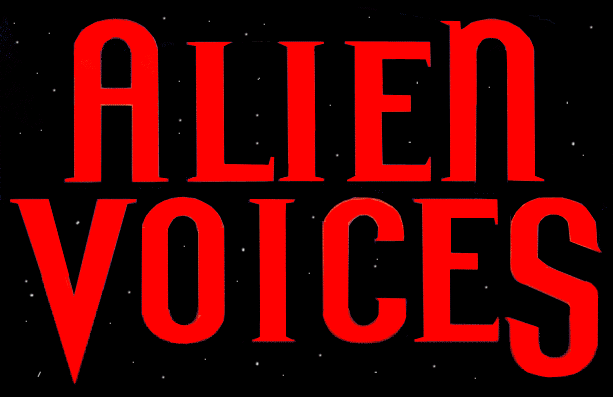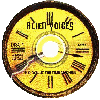
"The Time Machine" -- Background InformationAlien VoicesŪ chose H. G. Wells' novel The Time Machine as its maiden voyage because of its chilling vision of the distant future -- a vision that can inspire Man to change his Fate by mending his present ways.Set in England at the end of the 19th century, The Time Machine concerns a secretive inventor who devises a method of spanning the years -- indeed, the millennia -- by charging forward in time. The unnamed inventor is always referred to as "the Time Traveller" by his similarly unnamed friend, who narrates the tale. It is a difficult story for their friends to believe, yet it is also too compelling to forget: how the Time Traveller ventures to 805,701 AD; how he encounters the Eloi, a race of tranquil humans who frolic in a new Garden of Eden; how he learns the secret of the dreaded Morlocks, a subterranean race that preys upon the Eloi; and how he leaves them both behind as he hurtles to the very end of time. Most people have derived their imagery of The Time Machine from the wildly successful film version produced for MGM by George Pal in 1960 (and remade for television in 1978). They recall Rod Taylor as the Time Traveller, Alan Young playing a dual role as his friend and his friend's grandson, the arrival of satellites that enshrouded the earth with radiation in a 1966 nuclear war; the animated clothing on a dress shop mannequin; and other movie effects. None of that is in Wells' novel. The story Wells tells is of a Mankind that has split itself into two strains: docile (Eloi) and masters (Morlocks). He has his Time Traveller theorize that the Eloi are descendants of the privileged classes whose wealth and influence rendered them helpless over the years, while the Morlocks, who grew from abused workers forced to toil without sun, degenerated into a race of strong, yet slow-witted, ogres who survived at the expense of one of Man's greatest taboos. The Alien Voices adaptation holds closer and more completely to the integrity of Wells' narrative while introducing scenes, suggested by Wells' own writings, that apply his philosophy throughout the ages. These scenes also allow the performers more room to apply their craft and, not incidentally, contribute to the texture of the piece. In Alien Voices' production of The Time Machine it is a plague that provides the final blow in a succession of destructive decisions that Mankind has inflicted upon itself. As the Time Traveller's speed accords him the overview to see Man's folly in one swift arc, the listener can glean a sense of it, too. The moral is clear: no matter who is painted as an evil empire at any given snapshot in history, Man is his own worst enemy. And also his own salvation. Given that Wells was something of a nascent Socialist, this theory is not too surprising. Born in 1866 in Bromley, Kent, England into a working class family, he won a scholarship to the Normal School of Science in London where he studied under the in fluential Thomas Henry Huxley. Leaving applied science aside, Wells took up teaching, a profession which would ordinarily consign him to a life of near-poverty had he not begun writing short stories (which he called "scientific romances") for local periodicals. The Time Machine (1895) was his first novel; its success rescued him from poverty and propelled him into the front ranks of science fiction fantasists. It was an admittedly sparse front line as the 19th century wound down, and perhaps this is why Wells fell under such heavy attack for his vision. With The Island of Doctor Moreau (1896), The Invisible Man (1897), The War of the Worlds (1898) and First Men in the Moon (1901) he not only drew praise in literary salons but severe criticism in political circles. Attacked for pessimism, vulgarity and cynicism rather than celebrated for his inventiveness, he became disillusioned and eventually stopped writing novels. In 1920 he published An Outline of History which was equal parts commentary and scholarship. He died in 1946, still hoping to see the Utopian world he longed for in print but could never find in life. |
Click here for cast and credits of Alien Voices® productions.
You can order any of our titles, signed by Leonard Nimoy and John de Lancie. Click here! Order Signed Copies!
TO ORDER OUR SELECTIONS IMMEDIATELY from Amazon.com go to
the appropriate link. Choose either the CD or the CASSETTE version of
the title you want...
...Ask for Alien Voices®...




